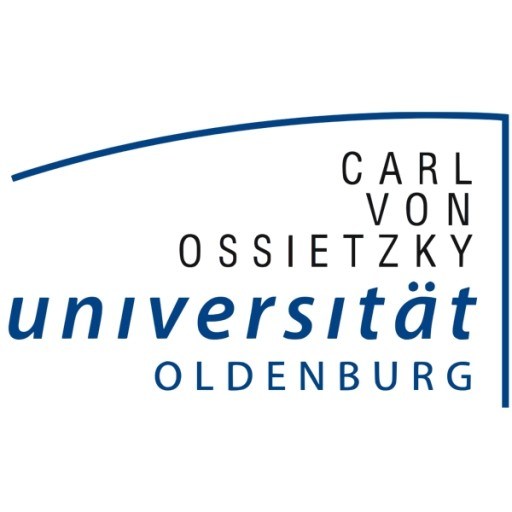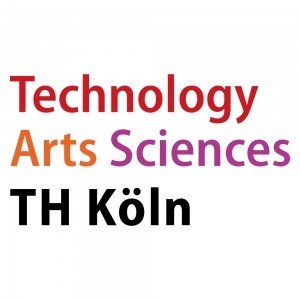The Economics and Finance Master's programme is a consecutive course of study that expands upon your undergraduate foundation of economics and business studies. It is designed to consolidate existing expertise while enhancing it with advanced specialist qualifications in the fields of finance and economics.
In particular, the programme will impart to you cutting-edge methods, applications, and models found in economics, corporate finance, and the analysis of international financial markets. Through experiments in game theory, behavioural economics analysis, and empirical market analysis, you'll develop and learn to employ a sophisticated research methodology. The multidisciplinary curriculum investigates not only law and economic issues, but also incorporates important macroeconomic and social issues as well. Among other things, you'll examine how conflicting viewpoints and actions can negatively affect competition and the financial and goods markets, illustrating both the importance and usefulness of value orientated, ethical behaviour in business. This multifaceted approach will enable you to effectively examine and evaluate economic issues in financial and competitive markets in both national and international contexts.
The degree programme is taught in English. As a result, you'll gain not only near-native proficiency in the language, but also fluency in the advanced terminology and nomenclature used in the highest economic and fiscal circles at the international level. This adds a further dimension to your profile that helps you stand out as an internationally-oriented expert in economics and finance.
In particular, the programme will impart to you cutting-edge methods, applications, and models found in economics, corporate finance, and the analysis of international financial markets. Through experiments in game theory, behavioural economics analysis, and empirical market analysis, you'll develop and learn to employ a sophisticated research methodology. The multidisciplinary curriculum investigates not only law and economic issues, but also incorporates important macroeconomic and social issues as well. Among other things, you'll examine how conflicting viewpoints and actions can negatively affect competition and the financial and goods markets, illustrating both the importance and usefulness of value orientated, ethical behaviour in business. This multifaceted approach will enable you to effectively examine and evaluate economic issues in financial and competitive markets in both national and international contexts.
The degree programme is taught in English. As a result, you'll gain not only near-native proficiency in the language, but also fluency in the advanced terminology and nomenclature used in the highest economic and fiscal circles at the international level. This adds a further dimension to your profile that helps you stand out as an internationally-oriented expert in economics and finance.
Educational organisation
In total, the standard period of study comprises three semesters. The first two semesters serve for the imparting of methods, applications and models in the areas of economics, finance, and international financial market analysis. Through the choice of specific elective subjects in the second semester, students are able to set individual specialisations. In the final semester, the Master's thesis is undertaken after completion of a preparative topics course on competition policy. This can be done in cooperation with stakeholders from financial institutions, industry, or public institutions.Study abroad unit(s)
NoneInternships
NoneCourse objectives
As a graduate of the Economics and Finance Master's programme, you'll possess a well-founded expertise in methodology, analysis, applications, and models in the fields of economics, corporate finance, and international financial markets. Your interdisciplinary experience will allow you to effortlessly and effectively transfer your technical and methodological knowledge to related fields. This opens the door to a wide range of career paths across many different fields and sectors. Potential areas of employment for graduates include the following:- financial and business development departments
- regulatory bodies or departments
- business consultancy firms
- expert commissions
- think tanks for policy or research
- investment and commercial banks
- public institutions on the national or international level
Language requirements
Please note that for Master's degree programmes, English language skills at level B2 are required. Please be aware that all applicants' test report form numbers will be checked.Please check the university web page for details.
The following certificates are accepted:
IELTS: 6.0 - 6.5
TOEFL (Internet-based test): minimum 80
TOEFL (paper-based test): minimum 550
TOEFL (computer-based test): minimum 213
The TOEFL code of our university is: 6962
The only exceptions to these language requirements is the achievement of a Bachelor's degree taught in English.
Please note: From the summer semester 2017 onwards, English language skills at level C1 are required.
Academic requirements
German entrance qualification for universities of applied sciences or equivalent(http://anabin.kmk.org/) and a Bachelor's degree (or equivalent) related to economics and finance with a German grade of 2.5 or higher or an ECTS grade of A or B
Want to improve your English level for admission?
Prepare for the program requirements with English Online by the British Council.
- ✔️ Flexible study schedule
- ✔️ Experienced teachers
- ✔️ Certificate upon completion
📘 Recommended for students with an IELTS level of 6.0 or below.
Enrolment fees
Approx. 270 EUR per semester. This covers nominal administration fees and includes a semester ticket that allows free travel on most bus and train routes throughout the state of North Rhine-Westphalia as well as to and from Nijmegen in the Netherlands.Costs of living
The "Deutsches Studentenwerk" puts the average cost of living for students in Germany at around 700 to 800 EUR per month. This includes rent, utilities, personal expenses, and other nominal costs. For a sample breakdown of living expenses and information about financing your studies in Germany, please see our website: http://www.hochschule-rhein-waal.de/en/academics/students/costs-scholarships-and-grants.Job opportunities
International students from non-EU countries are legally permitted to work 120 full days or 240 half days per year on a student visa. No additional authorisation from German authorities is required.Rhine-Waal University of Applied Sciences often posts job advertisements for students both inside and outside the university on campus noticeboards. Some jobs at the university only require English, but most jobs in Kleve, Kamp-Lintfort, and surrounding areas will require at least conversational fluency in German. Fortunately, our Language Centre offers German courses that students can attend at no charge.
However, due to the intense workload at Rhine-Waal University of Applied Sciences, first-year students are strongly advised to dedicate their full attention to their studies. In later semesters, you will have a more open schedule and a better idea of how to balance work and studies. This is also a realistic time frame for acquiring speaking proficiency in German while studying full-time.
Funding opportunities within the university
A limited number of scholarships are available for currently enrolled students at Rhine-Waal University of Applied Sciences. The most prominent scholarship is the Germany Scholarship ("Deutschlandstipendium"). German and international students are both eligible to apply. The Germany Scholarship is a stipend of 300 EUR per month awarded each year to a limited number of students who have demonstrated excellent academic performance or exemplary social commitment to the community. Other scholarships, grants, and fellowships are available through regional and national organisations in Germany. Please see our website for details.Rhine-Waal University of Applied Sciences informs all students of important scholarship deadlines in advance so that they don't miss any potential application opportunities.
http://www.hochschule-rhein-waal.de/en/academics/students/costs-scholarships-and-grants/scholarships-and-grants
Arrival support
Rhine-Waal University of Applied Sciences is accessible from the international airports Amsterdam (AMS), Düsseldorf (DUS), Cologne/Bonn (CGN), and Weeze (NRN). The university does not offer any pick-up services, but both Kleve and Kamp-Lintfort can be reached by public transportation from any of these airports.If you anticipate any travel problems, delays, or unexpected changes to your plans, please contact our Welcome Centre so that we can support you with helpful advice.
Services and support for international students
Our Welcome Centre supports international students during their first few weeks in Germany. The Welcome Centre provides helpful advice and guidance on contracts, opening a bank account, registering your place of residence, applying for a student visa, setting up health insurance, and more.The student mentors at the Welcome Centre know first-hand what it's like adjusting to life as a student in Germany. They are also an important first contact point for students with personal and social issues, as they can direct students to the right place for their specific needs. The Welcome Centre also promotes student culture at the university by organising trips and excursions to destinations all around the region as well as a range of social events for students such as the annual "Freshtival", the university's week-long orientation festival for new students in the winter semester.
Accommodation
Rhine-Waal University of Applied Sciences strongly urges you to make accommodation arrangements before your arrival. The university does not have its own residence halls, but the "Studierendenwerk Düsseldorf" runs dormitories near campus in Kleve and Kamp-Lintfort with options for single rooms or two- and three-room flats. Prices start at around 220 EUR per month. Room availability in these dormitories is limited and subject to a waiting list, so it's important to register online for a room as soon as possible. Please note that a security deposit of three months' rent is also required.Most students choose to share a private flat off campus with fellow students. There are a number of popular online portals for finding a flat in Germany, for example: http://www.wg-gesucht.de. Rhine-Waal University of Applied Sciences also maintains its own list of available flats and rooms for students on its website. Thanks to the flexibility of the Semester Ticket, students can live in Kleve, Kamp-Lintfort, or one of the many cities and towns nearby and reach campus by public transport. For more information and helpful tips on finding a flat, please see our website: http://www.hochschule-rhein-waal.de/en/academics/prospective-students/housing.










